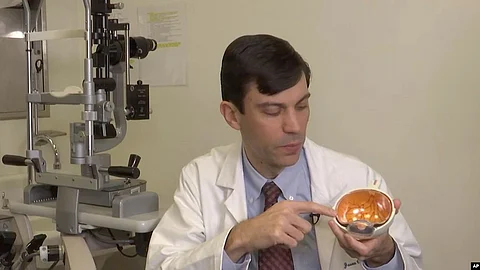Maintain Healthy Vision with Regular Dilated Eye Exams
Don’t wait for symptoms such as blurred or distorted vision, floaters or a shadow across your field of vision to appear – many people have conditions like diabetic retinopathy for a long time without symptoms. By the time symptoms appear, substantial damage may have occurred. Regular dilated eye exams can reduce the risk of developing more severe complications from the disease. During this exam, a retina specialist places drops in the eyes to make the pupils dilate (open widely) to allow a better view of the inside of the eye, especially the retinal tissue. Then the retina specialist looks for swelling in the retina, evidence of poor retina blood circulation, abnormal blood vessels, or scar tissue on the retina.
Erik, diagnosed with diabetes at age two, has made his vision a priority by seeing a retina specialist for regular dilated eye exams since he was a teen. When he did notice symptoms such as floaters and some bleeding in his eye, known as a vitreous hemorrhage, he contacted his retina specialist immediately and his vision was restored through surgery and ongoing management of his condition.
If you experience symptoms of diabetic eye disease, see a retina specialist as soon as possible.


